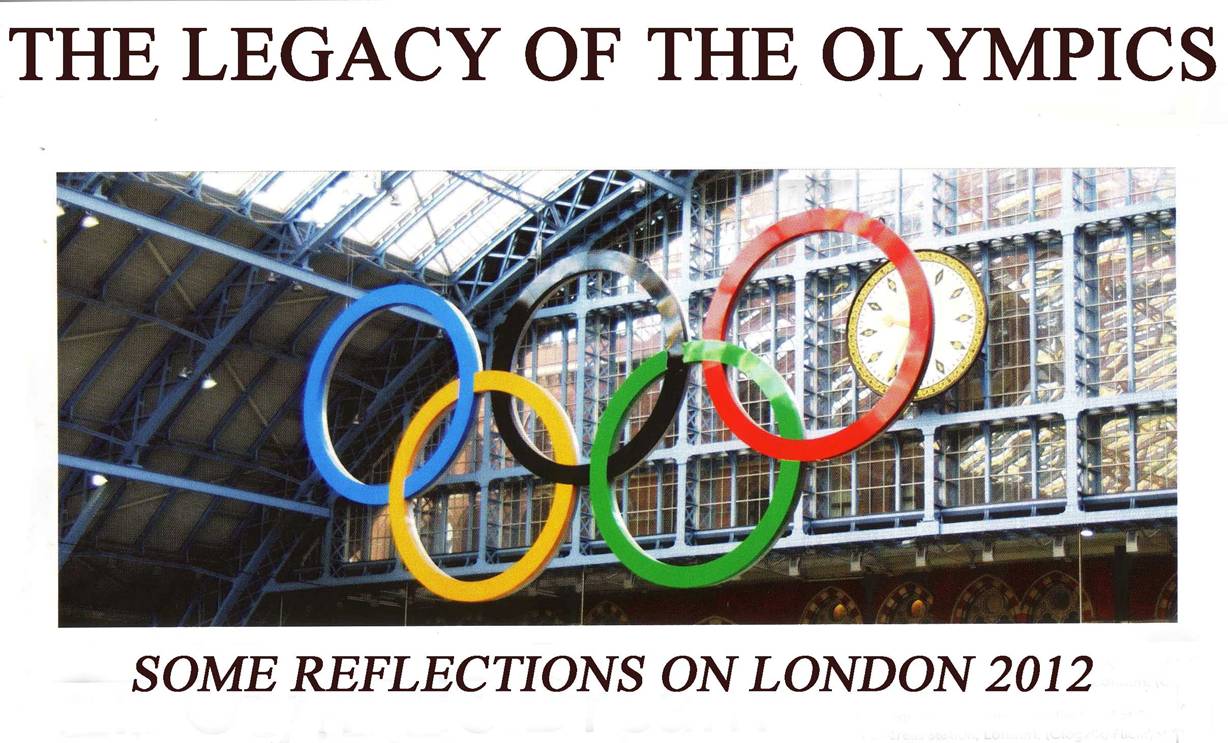
[* From
The London Olympics and Paralympics 2012 have been heralded as
a resounding success and a tremendous showcase for the
It was also encouraging to note the participation of several
Christian competitors, from various nations, and many of them took the
opportunity to witness to their Christian faith during the Games.
But what do we make of the nation’s seeming preoccupation with
the London Olympics? For 17 days, from
the opening ceremony on Friday 27 July to the closing ceremony on Lord’s Day 12
August, nothing else seemed to be happening in the world. Non-Olympic news was either ignored or buried
at the very end of bulletins as reporters excitedly informed us of the latest medals
tally or we watched umpteen emotional athletes breaking down, for one reason or
another, in floods of tears. A cartoon
in the “Spectator”
summed it up well. It featured a
newsroom with two people working at computer screens which said, “Olympics” and “More Olympics”,
when their colleague rushed in and cried “Hold the
37th page!” as he waved a paper containing the words “The end of the world”.
We might smile at this, but it does make a serious point. The media and public obsession with the Games
lacked perspective and balance. It was a
reminder that our nation is unwell, not only economically and politically, but
morally and spiritually. The Protestant faith which, for centuries,
was the solid foundation upon which
Nations and peoples are exhorted in the Bible to put the Lord
first, for that is the way of true blessing.
Psalm
19: 10 tells us that the Bible is to be
desired more than gold, for in keeping God’s law and His truth there is “great reward”
(Ps 19: 11). But our nation has repudiated God’s Word.
The Government pursues an anti-Christian moral agenda. Shops, which were given
extended hours during the Olympics, can probably look forward to this being
made permanent. More and more sporting
events take place on the Lord’s Day.
Church attendance continues to fall.
The British people have coveted
gold, silver and bronze, but have turned their back on “the pearl of
great price” (Matthew 13: 46). And, until there is national repentance and revival, the slide downhill
will continue to accelerate.
It is also worth noting that the Olympic Games are essentially
pagan in origin and intended as veneration of the Olympian gods. The Olympic torch relay is the descendent of
the sacred flame that burned during the ancient games on the altar of the
goddess, Hera.
The founder of the modern Olympics, Pierre
de Coubertin (1863‑1937) asserted that “the
primary, fundamental characteristic of ancient Olympism,
and of modern Olympism as well, is that of a religion”,
and Avery Bundage,
President of the International Olympic Committee 1952-72, said that Olympism is “a religion with
universal appeal which incorporates all the basic values of other religions, a
modern, exciting, virile, dynamic religion”.
During the Olympics, much was also made of how the nations of
the earth had come together, through sport, in peace and harmony. But
the peace and harmony of a sporting occasion such as the Olympics, while it may
exude a nice warm glow of happiness, largely serves as a form of escapism which
masks the harsh reality that the world is a very divided, dangerous and
unstable place which is hurtling towards judgement. Christ Himself, often heralded by the world
as a man devoted to world peace, said, “Think not that I am come to send
peace on earth: I came not to send
peace, but a sword” (Matthew 10: 34). Christ also spoke of a time when the
nations would indeed come together, not to celebrate a sporting occasion, but
to stand before him as judge when He comes in His glory.
Matthew
25: 32 states, “And before
him shall be gathered all nations: and he shall separate them one from another,
as a shepherd divideth his sheep from the goats”.
The Bible also compares the Christian life to that of an
athlete, and the apostle Paul, in particular, often uses sporting metaphors
drawn, undoubtedly, from his knowledge of
As believers, let us commit ourselves afresh to the service of
our Lord. Our land is gripped by a spiritual famine and there is so much work for
us to do. False religion flourishes
and false gods are worshipped. What we need today is Christians who are
dedicated and disciplined, and prepared to stand for God. Towards the end of his faithful life and
ministry, Paul could say, “I have fought a good fight, I have finished
my course, I have kept the faith” (2 Timothy 4: 7). May the same be
said of us, and, as we “press toward the mark for the prize of the high calling of God in Christ Jesus”
(Philippians 3: 14), let us heed the words of Hebrews 12: 1-2 - “Wherefore
seeing we also are compassed about with so great a cloud of witnesses, let us lay aside
every weight, and the sin which doth so easily beset us, and let us run with
patience the race that is set before us, Looking unto Jesus the author and
finisher of our faith”.